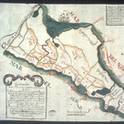This article examines the books of three British travelers to Central America to suggest new ways to understand the growth of an “imperialist” travel literature in the first half of the nineteenth century. In considering the religious and commercial themes in the writing of George Thompson, Henry Dunn, and Frederick Crowe, the article finds a change in attitude and vocabulary. Thompson and Dunn, who visited Central America in the 1820s, identified the new Spanish American republics as modern by nature, with societies similar to those of Europe and with both social and commercial potential. Travelling in the 1840s, on the other hand, Crowe discovered a culture that he could not compare with Europe, one that existed in a permanent paradigm of backwardness. As part of this process, the language used in the travel accounts to describe Central America adopted the term “unknowable”, which eventually came to mean “distinct” and “exotic” as well.
Available at: http://works.bepress.com/jordana_dym/10/
